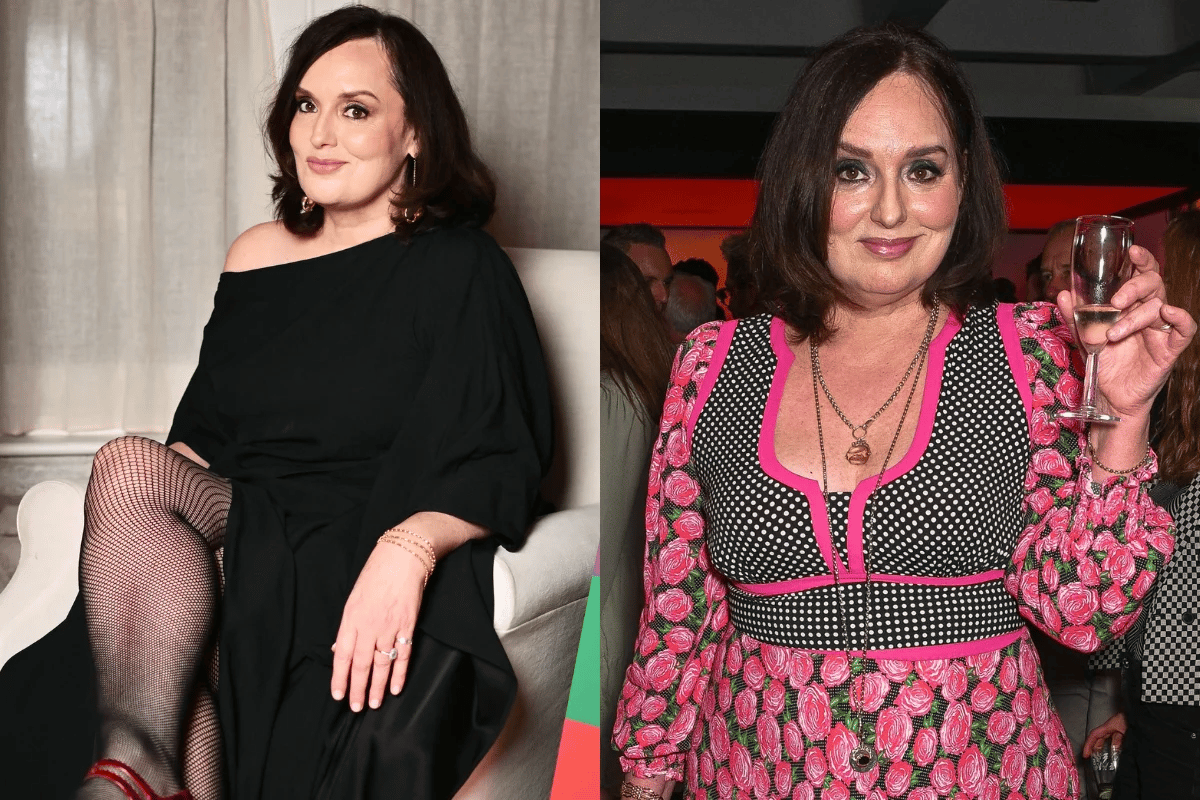
Deborah Frances-White is having the conversations that make everyone else squirm — and she's doing it with a smile.
There's something deliciously subversive about being made to laugh while having everything you thought you knew about society's most pointed questions dismantled. It's a balancing act that Deborah Frances-White pulls off with ease.
Best known for her wildly popular podcast, The Guilty Feminist, Deborah has now published a book titled, Six Conversations We're Scared to Have. But Deborah's journey to becoming a professional question-asker began in the most unlikely place: the Jehovah's Witnesses.
Born in Brisbane, adopted at 10-days-old and raised on the Gold Coast, she spent her mid-teens and early twenties in the faith before making the difficult decision to leave.
"It can either crush you or make you rise. It's so hard to get out. It's so hard to stay in, and it's so hard to get out," she told Kate Langbroek on Mamamia's No Filter.
"Once you've knocked on the door of some stranger on Sunday morning and said, 'you're going to die horribly in Armageddon unless you take this magazine,' stand-up comedy is nothing. At least they paid to be here."
Listen to Deborah Frances-White's conversation with Kate Langbroek on No Filter. Post continues below.
But Deborah's commitment to difficult conversations has come at a personal cost.
She recalled that once, after appearing on a right-wing podcast to engage in cross-aisle dialogue, she received death threats from what she calls "the manosphere" — otherwise known as the men influenced by figures such as Andrew Tate.
One particularly memorable message read: "You are an ugly, stupid, dangerous, disingenuous c—. You are literally the downfall of the Western world. All I could do is pray for you." The praying hands emoji finished the message off.






























































































